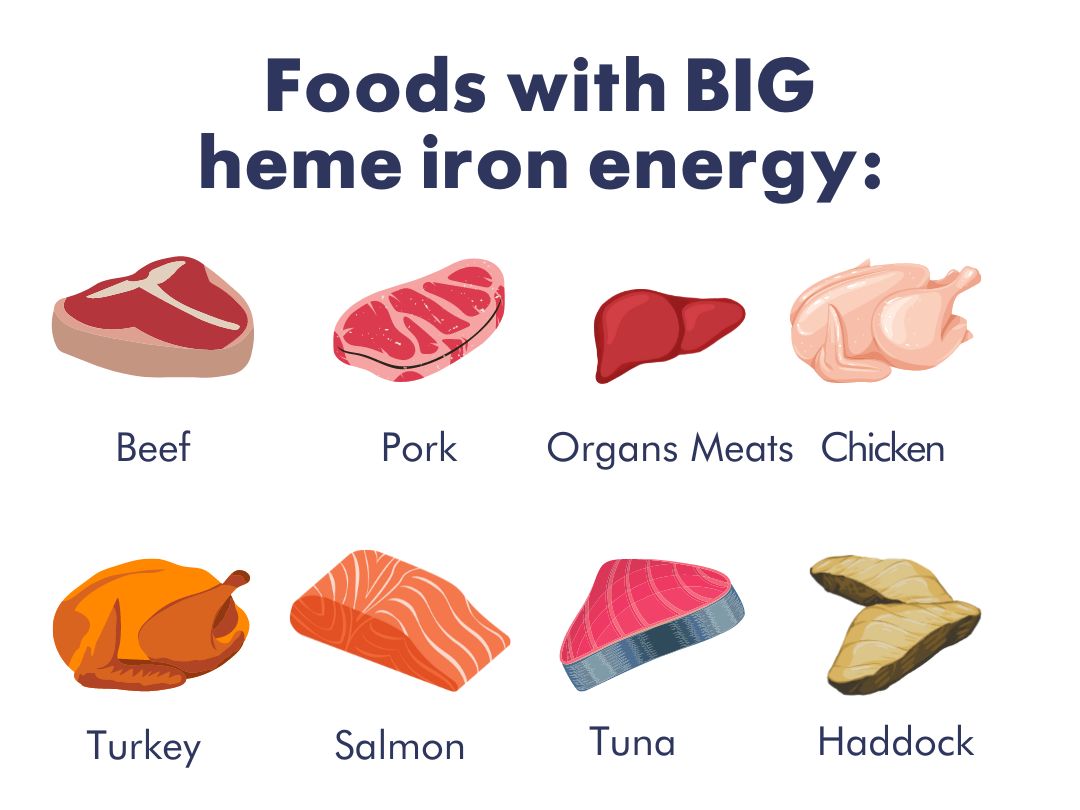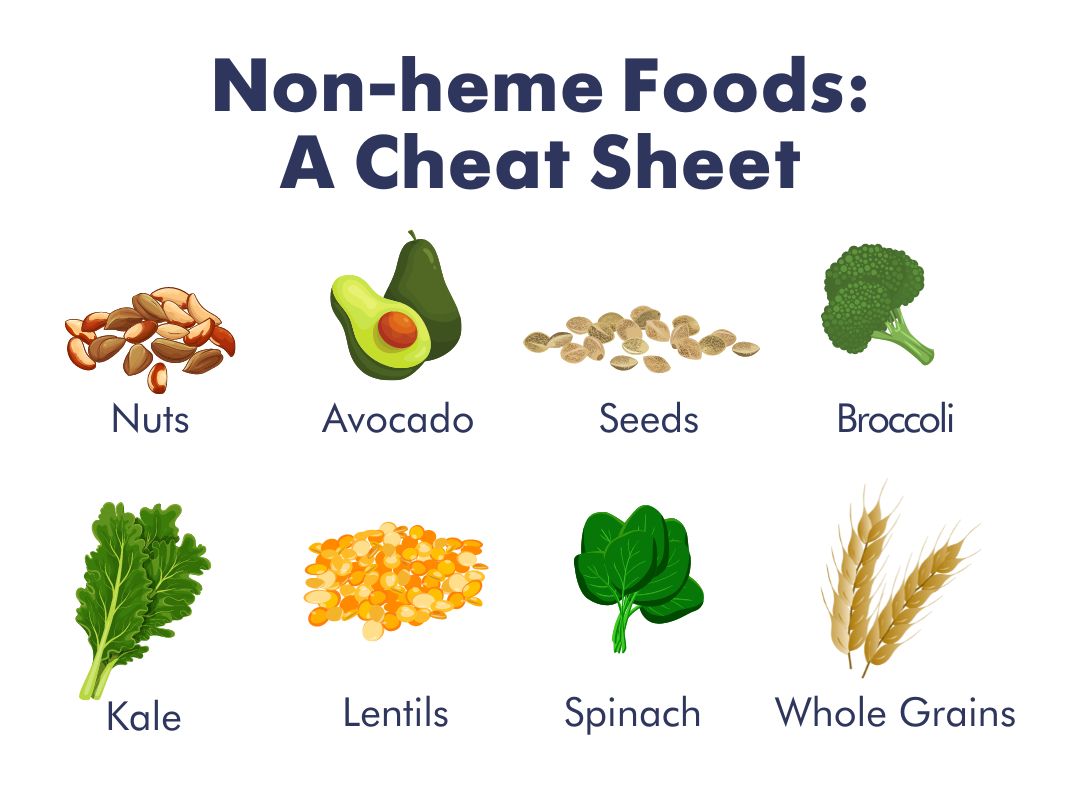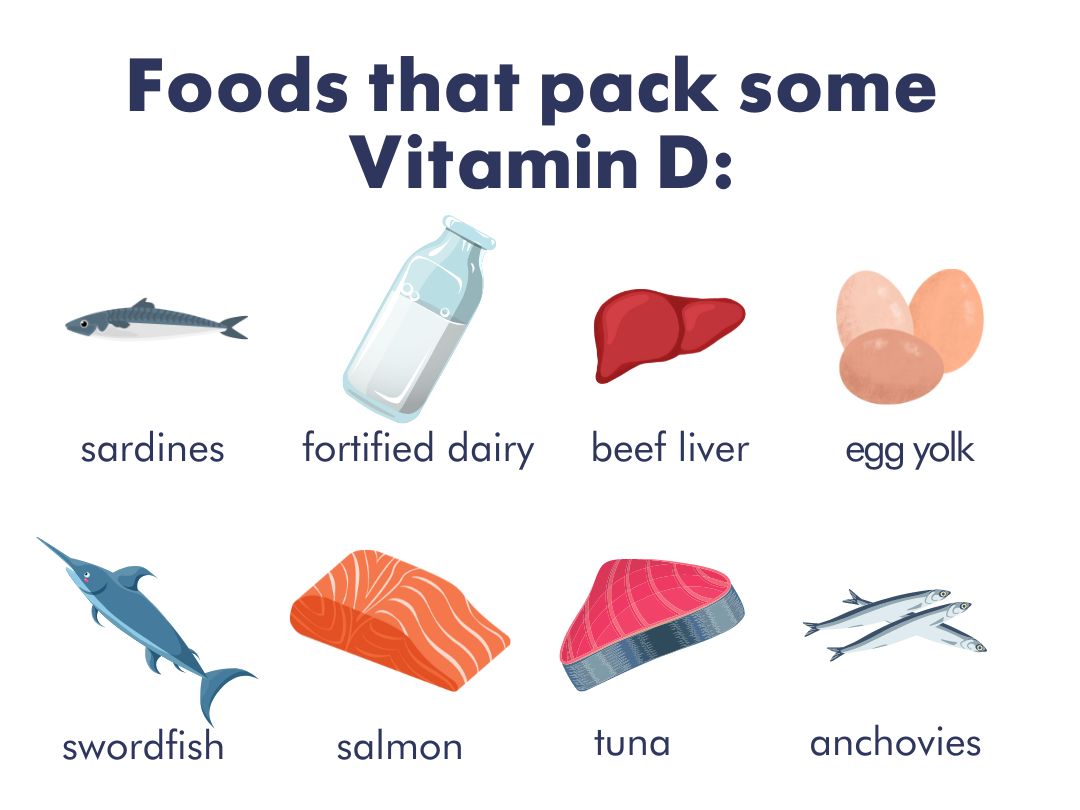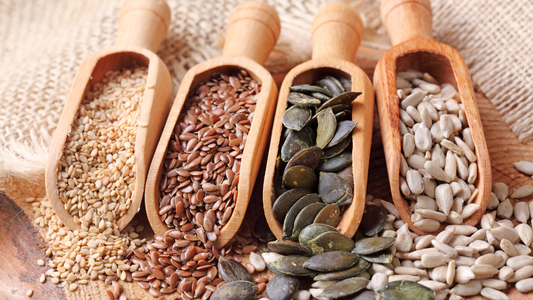Your Thyroid Before, During, and After Pregnancy
TL;DR

One in eight women in the United States will develop a thyroid disorder during their lifetime (1).
There are three things that I find alarming about that statistic. One out of every eight women is a staggeringly high number (~40 million in the US). The conditional phrase “during their lifetime” tells us that thyroid disorders can occur at any time, in any stage of life, and many may go untreated. But what concerns me most about this sentence is simply the word thyroid.
Why?
Thyroid disorder is widespread, yet many people don’t know what a thyroid is or what it does.
That ends today!
I want to empower you to take your thyroid health into your own hands! This article will highlight three key points:
- WHAT your thyroid is and the role it plays in your fertility and reproductive health
- WHO can help you optimize your thyroid health (what types of professionals to seek out)
- WHERE to find the nutrients, foods, and supplements that support your thyroid function not just for conception, pregnancy, and postpartum recovery but for life
Let’s start with the basics.
1. WHAT is a thyroid?
Your thyroid is a butterfly-shaped gland that sits low on the front of your neck along your windpipe (imagine it spreading its “wings'' symmetrically). This gland secretes essential hormones that play a huge part in almost all of the metabolic processes in your body, exercising an enormous influence over how you function in everyday life.
Your thyroid’s role in fertility and reproductive health
Since our metabolic and reproductive systems are reciprocally regulated (read: extremely interconnected), your thyroid health impacts your fertility and pregnancy efforts.
The primary hormone your thyroid produces is called thyroxine, known as T4 for short. T4 is what the thyroid gland produces, which requires a LOT of nutrients in the process.
To properly produce T4, your body needs the following:
- Iron
- Iodine
- Tyrosine
- Zinc
- Selenium
- Vitamin C
- Vitamin D
- Vitamin E
- Riboflavin
- Niacin
- Vitamin B6
It’s incredibly nutrient-intensive! With so much in the balance, it’s important to be aware that many factors can inhibit the production of T4, even for those with normally functioning thyroid glands. Endocrine disruptors - stress, infection, physical trauma, radiation, certain medications, and fluoride - play into the speed and efficiency with which your thyroid produces T4.
Thyroid hormone production increases by 40-100% during pregnancy (2, 3), which is particularly important throughout the first trimester (and even into the second), when baby is entirely dependent on your body’s thyroid hormone production. Thyroid hormone is needed in increased amounts starting at conception but needs peak between weeks 6-10 of pregnancy when miscarriage risks are still relatively high. By weeks 16-20, baby’s thyroid gland begins to mature enough to produce enough thyroid hormone to meet its own needs, allowing your body to use most of your own thyroid hormone to self-regulate. However, be aware that your thyroid hormones continue to pass through the placenta to baby, directly affecting their normal growth and development, so it’s still important. Due to such high stakes, some studies have even suggested that thyroid dysfunction is one of the leading causes of early pregnancy loss.
Thyroid-stimulating hormone (TSH) is secreted by the pituitary gland and regulates thyroid hormone release. TSH is powerful. It tells the thyroid gland to make and release thyroid hormones into the blood as needed. High TSH indicates low thyroid hormone levels (hypothyroidism), while low TSH reveals high levels (hyperthyroidism).
However, according to the American Thyroid Association, even when T4 and TSH levels are “normal,” many women still have symptoms of thyroid dysfunction. When your body can produce the required thyroid hormone levels, it can support the balance of your reproductive hormones, which assists with a healthy and regular menstrual cycle and optimizes fertility. Adequate thyroid hormone production also helps support breast milk production postpartum.
So all that’s to say is that the importance of healthy thyroid function cannot be overstated! This is why it is so important (and why in my private practice at Boston Functional Nutrition) I look at thyroid function preconception and test again or coordinate with a patient’s other health practitioners and advocate for early monitoring in the first trimester, especially if there is a history of pregnancy loss.
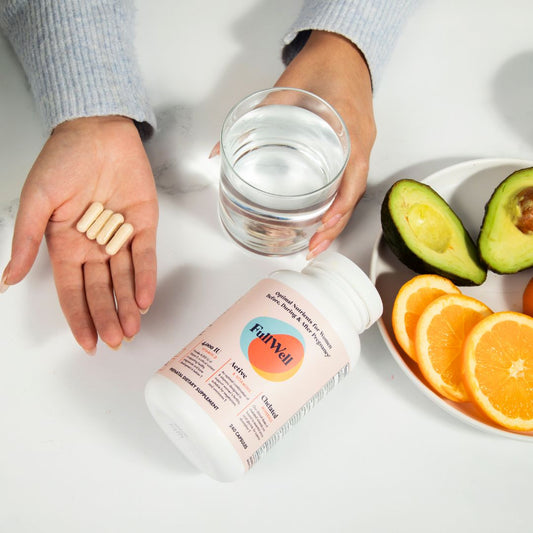

2. WHO can help me assess my thyroid needs?
You can turn to many professionals to diagnose and treat thyroid health. You’ll likely see and interact with more than one, especially once you become pregnant.
- Endocrinologists are the most specialized doctors for these types of disorders and will likely be a regular part of your life and treatment once you’ve been diagnosed, regardless of where you are on your fertility journey
- General Practitioners are capable of detecting and treating thyroid disorder but might refer you to an endocrinologist for further evaluation upon diagnosis
- OBGYNs tend to look at thyroid levels since they are so closely affected by pregnancy. Your OBGYN should work with your other providers to ensure open communication of treatment needs preconception, during pregnancy, and postpartum
When it comes to other providers who can help, Registered Dietitians - while unable to diagnose and treat - are often great at keeping their finger on the pulse of what’s going on with your thyroid, especially if, like me, they consistently run lab work and use highly specialized professional assessment tools. An RD is thoroughly trained to look for nutrient deficiencies and lifestyle factors that may negatively impact thyroid health and will be a valuable person on your team when it comes to fueling for a maximally supported thyroid.
No matter who you see, building a trusting relationship and ensuring collaboration is essential. It’s critical to feel as though you have a say in your hormonal health and be on the same page regarding treatments and medications.
Effective treatment
Getting to the root cause of thyroid issues is extremely important as it will guide you and your practitioner(s) on how best to treat it. It may be as simple as correcting some nutrient deficiencies and supplying the gland with more nutrients, like iron, iodine, B12, and folate. In some cases, that might be enough to move thyroid function from suboptimal to optimal. Even if thyroid treatment with supplemental medication is needed, these nutrients are still critical to assist with the conversion and utilization of supplemental thyroid hormones like levothyroxine (a synthetic thyroid hormone biologically equivalent to T4) and Cytomel® (a synthetic version of T3) (4).
Throughout pregnancy
I know that so much of this feels cautionary, but there is some good news! A healthy pregnancy does not depend on whether or not thyroid conditions are present but on the treatment received (5). Research has routinely found that treating thyroid disorders dramatically helps support a healthy pregnancy (5). Timely, effective treatment helps to support carrying a baby to full term, optimizes birth weight, and supports the healthy development of the placenta and baby’s overall neurodevelopment (5).
The need to look at thyroid function in the preconception stage is critical. Proper testing should be coordinated between your healthcare providers early in the first trimester (especially if there is a history of miscarriage) and continue throughout pregnancy and after delivery because thyroid lab values fluctuate during pregnancy. No single marker will paint a complete picture regarding thyroid health in pregnancy, but there are some great resources out there that can help guide you from trimester to trimester.
Symptoms: listening to your body
While data tells us so much of what we need to know, symptoms are also significant. After all, they affect your day-to-day life during pregnancy and beyond. And, as we’ve established, there are situations where lab values fall within “normal” reference ranges, masking underlying issues with thyroid function, so symptoms should always be part of the discussion.
3. WHERE do I look for nutrients, foods, and supplements to support my thyroid?
Ah! We’ve finally reached my favorite part, the supporting nutrients, and food sources!
Iron
Adequate iron levels help support normal TSH and T4 concentrations during pregnancy (6), so it’s imperative to consider your diet as iron-forward. The richest food sources of highly bioavailable heme iron include organ meats, beef, lamb, salmon, tinned tuna, pork, chicken, and snapper. For plant-based mamas, sources of non-heme iron include nuts, beans, vegetables, and fortified grain products, but do keep in mind that these are not as easily absorbed. Check out our blog on iron for more information on how to pack this nutrient into your diet, and learn which labs to request if you think you might be deficient.
Iodine
Iodine requirements increase by as much as 50-75% during pregnancy because while fetal thyroid gland development is in process, baby depends entirely on maternal thyroid hormone. This is due to a 30-50% increase in renal iodide clearance and trans-placental transfer leading to an increased risk of deficiency and hypothyroidism (7, 8). In other words, pregnancy needs a lot of iodine, and one of the most important functions of iodine is the production of thyroid hormone and general endocrine health. Dietary sources of iodine include iodized table salt and bread and marine foods like fish (e.g., tinned salmon) and shellfish (e.g., oysters).
If you’re well-versed in thyroid health - particularly in Hashimoto’s, a form of underactive thyroid disorder - you might be wary of overdoing iodine. However, all of us need some iodine to keep our thyroids running smoothly, so in terms of supplementation, FullWell Prenatal contains 250 mcg of iodine, which is in step with the World Health Organization’s and American Thyroid Association's recommendations for iodine supplementation during pregnancy. Since postpartum and breastfeeding moms need even more iodine than typical, this is a critical nutrient to take before, during, and after pregnancy. If you have additional concerns regarding the dose of iodine you supplement, be sure to start a conversation with your healthcare provider(s).
Tyrosine
Tyrosine is a nonessential amino acid that the body can make itself from another amino acid called phenylalanine. Tyrosine is found in soy products, chicken, turkey, fish, peanuts, almonds, avocados, bananas, milk, cheese, yogurt, cottage cheese, lima beans, pumpkin seeds, and sesame seeds.
Zinc
Zinc is an essential mineral critical to many biological processes and is key to healthy immune function. Mild-to-moderate deficiency is common: approximately 80% of pregnant women worldwide have inadequate zinc intake, so supplementing with zinc is a vital nutrient to supplement, especially for thyroid health. For vegetarian women, it is even more critical. Zinc is found in several foods, including meat (beef, lamb, and pork), fish, shellfish, poultry, legumes like chickpeas, lentils and beans, seeds like squash, pumpkin, sesame, and hemp seeds, eggs, whole grains, and dairy foods.
Selenium
Selenium is an essential trace mineral that must be obtained through diet. It plays a crucial role in forming enzymes that impact antioxidant defense mechanisms and thyroid hormone metabolism, positively affecting those pregnancy demands for increased thyroid hormone we discussed earlier. For selenium-rich foods, focus on seafood, organ meats, and Brazil nuts. (Additionally, selenium is super important for male fertility as well: check out this article for more info.)
Vitamin E
Vitamin E works alongside selenium to support the thyroid and is found in plant-based oils like sunflower and safflower oil, sunflower seeds, almonds, peanuts, peanut butter, collard greens, spinach, red bell pepper, mango, and avocado.
Riboflavin (Vitamin B2)
This nutrient promotes good vision, healthy skin, and the development and growth of baby’s bones, muscles, and nerves, but in mom, it also supports healthy blood pressure for the duration of pregnancy. Like all B vitamins, Riboflavin is water-soluble, which means your body will excrete what it doesn't need. Riboflavin is found in milk, yogurt, cheese, eggs, lean beef, pork, and organ meats like beef liver, chicken breast, salmon, almonds, and spinach.
Niacin (Vitamin B3)
B3, or Niacin, is found in red meat like beef, beef liver, pork, poultry, brown rice, fish, nuts and seeds, legumes, and bananas.
Vitamin B6
This essential nutrient helps support mood and a healthy night's sleep and reduces pregnancy-related nausea. I included robust amounts of vitamin B6 in FullWell’s prenatal in the most researched, highly bioavailable form to support the most challenging pregnancy symptoms. Vitamin B6 is found in beef liver, tuna, salmon, chickpeas, poultry, dark leafy greens, bananas, oranges, and cantaloupe.
Vitamin C
An important antioxidant and co-factor for both mom and baby, vitamin C is involved in many metabolic processes in the body. While getting enough vitamin C in your diet is possible, it’s best to get more, not less, of this helpful nutrient. Vitamin C is always included in my client protocols, particularly for those who have inflammation of any kind: endometriosis, PCOS, unexplained infertility, or those trying to conceive after the age of 35, when oxidative stress can have a more significant impact on fertility. Vitamin C is found in citrus (oranges, kiwi, lemon, grapefruit), bell peppers, tomatoes, strawberries, white potatoes, and cruciferous vegetables (broccoli, Brussels sprouts, cabbage, cauliflower).
Vitamin D
Vitamin D deficiency is common across all geographic locations, races, sexes, and genders. A double-blind, randomized clinical trial found that vitamin D supplementation of 4,000 IU/day for pregnant women was safe and most effective in achieving sufficiency in all women and their neonates, regardless of race. It was the minimum amount needed for 82% of women to have adequate vitamin D levels at birth. The 4,000 IUs in FullWell Prenatal is both safe and essential for mom and baby. Few foods are naturally rich in vitamin D3, so aside from supplementing, the best sources are the flesh of fatty fish and fish liver oils. Smaller amounts are found in egg yolks, cheese, and beef liver. Some mushrooms contain some vitamin D2 often because they have been exposed to high amounts of ultraviolet light.
The good news is that FullWell provides most of these nutrients needed to support optimal thyroid function in highly effective forms and doses. As mentioned earlier, T4 is incredibly nutrient intensive, with iron, iodine, tyrosine, zinc, selenium, riboflavin, niacin, B6, and vitamins C, D, and E needed for its production.



